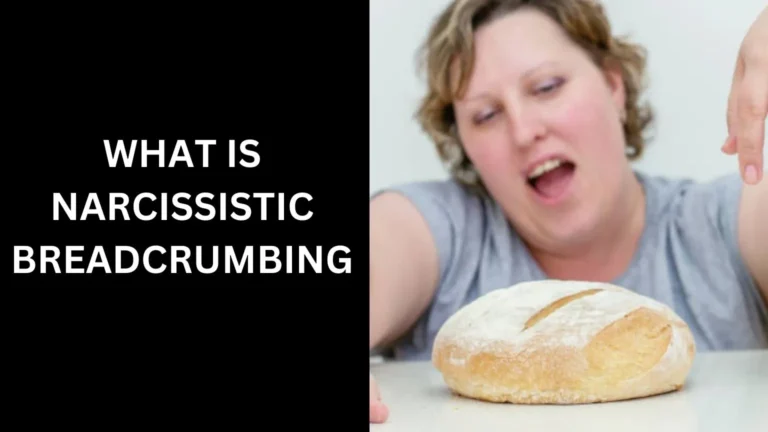Devaluation Phase of Narcissistic Abuse (Guide) of 2024
Narcissistic abuse is a complex and harmful form of manipulation and control that can have devastating effects on victims.
Devaluation Phase of Narcissistic Abuse, One of the key phases in this cycle of abuse is the devaluation phase,
where the narcissist’s behavior shifts from idealization to devaluing and demeaning their victim. Understanding this phase is crucial for both victims and those supporting them.

Introduction to the Devaluation Phase of Narcissistic Abuse
Narcissistic abuse is a pattern of behaviors employed by individuals with narcissistic personality traits or Narcissistic Personality Disorder (NPD).
It involves a range of manipulative tactics aimed at gaining power and control over others. The devaluation phase is a critical part of this abusive cycle.
Characteristics of the Devaluation Phase
During the devaluation phase, the narcissist’s behavior undergoes a dramatic shift. They may become critical, demeaning, and emotionally abusive towards their victim.
This phase often follows a period of idealization, where the narcissist initially showers the victim with love, attention, and praise.
The devaluation phase is characterized by:
- Psychological Manipulation Tactics: Gaslighting, manipulation, blame-shifting, and invalidation are common tactics used during this phase. The narcissist may distort reality, making the victim doubt their own perceptions and experiences.
- Emotional and Mental Abuse: Verbal attacks, insults, and emotional neglect are prevalent during devaluation. The victim may feel constantly belittled, unappreciated, and emotionally drained.
Effects of Devaluation on Victims

The devaluation phase can have profound effects on victims’ mental and emotional well-being.
Some common effects include:
- Emotional Turmoil and Self-Esteem Issues: Constant criticism and emotional abuse can lead to feelings of worthlessness, shame, and low self-esteem. Victims may internalize the negative messages from the narcissist.
- Cognitive Dissonance and Confusion: Victims often experience cognitive dissonance, where they struggle to reconcile the narcissist’s initial idealization with their current devaluation. This confusion can lead to self-doubt and inner turmoil.
Coping Mechanisms During Devaluation
Coping with narcissistic abuse during the devaluation phase requires resilience and self-awareness.
Some effective coping mechanisms include:
- Seeking Support and Therapy: Connecting with trusted friends, family members, or mental health professionals can provide validation and support. Therapy can help victims process their experiences and develop healthy coping strategies.
- Setting Boundaries and Self-Care Practices: Establishing clear boundaries with the narcissist and prioritizing self-care are crucial. Practicing self-compassion, engaging in activities that bring joy, and focusing on personal growth can empower victims during this challenging phase.
Recovery and Healing
Recovering from narcissistic abuse involves acknowledging the abuse, reclaiming personal power, and prioritizing healing.
Steps towards recovery include:
- Recognizing the Abuse and Its Impact: Educating oneself about narcissistic abuse and recognizing the patterns can be empowering. Understanding that the abuse is not the victim’s fault is a crucial first step.
- Rebuilding Self-Worth and Confidence: Engaging in self-reflection, affirming one’s strengths and values, and surrounding oneself with supportive relationships can aid in rebuilding self-worth and confidence.
People also ask
How long before a narcissist starts to devalue?
The devaluation phase in narcissistic abuse typically begins after the initial idealization phase, which can last anywhere from a few weeks to several months.
How long does the devaluation phase last?
The duration of the devaluation phase in narcissistic abuse can vary widely,
lasting from weeks to months or even longer, depending on the dynamics of the relationship and the behavior of the narcissist.
How do you know you’re being devalued by a narcissist?
You may be experiencing devaluation by a narcissist if you notice a sudden shift in their behavior, such as increased criticism,
withdrawal of affection, belittling comments, and a lack of empathy or validation for your feelings and experiences.
What triggers the devaluation stage?
The devaluation stage in narcissistic abuse is often triggered by threats to the narcissist’s ego, challenges to their control, or perceived criticism or rejection from the victim.
Conclusion
The devaluation phase of narcissistic abuse is a deeply distressing and challenging experience for victims.
By understanding the characteristics of this phase, implementing effective coping strategies, and prioritizing recovery and healing, victims can reclaim their lives and move towards a brighter future.






